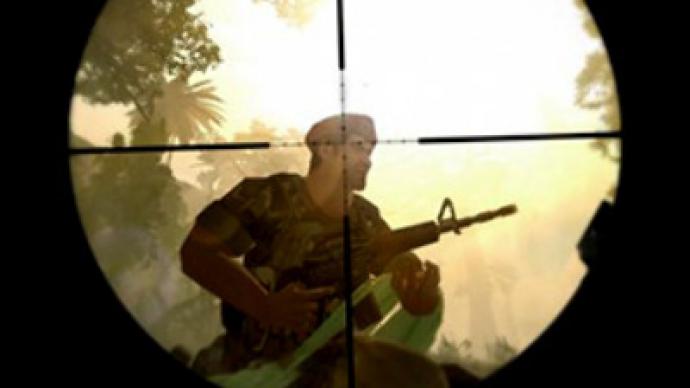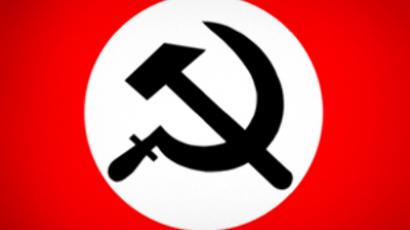MP suggests banning media from quoting terrorists

The media should be banned from quoting terrorists’ statements, according to a deputy from the ruling United Russia party. Robert Schlegel has submitted a respective draft law to the State Duma.
The suggested amendment to the Law of the Russian Federation “On Mass Media” would prohibit the reproduction of any materials on behalf of those on a wanted list for terrorism or convicted of terrorist activities.
The move comes a week after two suicide bombings in the Moscow Metro claimed 40 which was then followed by a chain of terrorist attacks in the Russian North Caucasian republics of Dagestan and Ingushetia.
Following the tragedy in the capital, Russia's most-wanted terrorist, Chechen militant Doku Umarov, claimed responsibility for the bombings. His statement was quoted by a number of media outlets. Also, a video with a man who introduced himself as Umarov and claimed that he personally ordered the suicide bombings was available on YouTube and had been watched by thousands of internet users.
“I believe that terrorists must not be allowed to speak in the mass media,” Schlegel wrote in his internet blog. “For instance, it is unacceptable for the largest publications and information agencies to give a soapbox for murderer and terrorist Doku Umarov, who is on the federal wanted list.”
According to the parliamentarian, by publishing the terrorists’ statements the media only “worsens the rather complicated situation” and causes fear and anxiety among the population.
“What is it if not complicity in terrorism?” the deputy questions. The terrorists’ aim, Schlegel believes, “is not the death of dozens, but millions in fear of a bunch of bandits.”
“No provision shall be made for the use of mass media for purposes of committing criminally indictable deeds, for divulging information containing state secrets or any other secret protected by law, for distribution of materials containing calls for performing terrorist activities or publicly justifying terrorism, other extremist materials….”Law of the Russian Federation “On Mass Media”, Article 4.
The lawmaker said he was also bewildered by the position of Google which owns the video website YouTube. “Does Google support terrorists?” he asks in his blog.
“In my opinion, the news about militants should boil down to reports about their elimination,” Schlegel said.
Clarifying his position to Gazeta.ru online news outlet, the 26-year-old lawmaker said that “the citizens should know who committed a terrorist attack, but there is no need to make them aware of the motives behind that.”
The initiative of the United Russia deputy has caused mixed reactions in the media and especially among the Russian Internet community. While some Internet surfers fully support the idea, others see absolutely no point in making changes to the existing legislation. Moreover, some have already dubbed the proposal “an attack on media freedom” and “a comeback for censorship.”
“When my people are being blown up in the Metro, houses, etc, I am interested in listening to the other party’s opinion. In particular to Umarov in the current situation. There should be something that is behind his activities,” one of the web users wrote commenting on Schlegel’s post in his blog. “Hitler’s activities were also motivated by something,” another one argued in continuation of the heated debate. “But if he was given an opportunity to address the Soviet nation, it would be strange at the very least.”
“We can and should write about the problem of terrorism and ways of tackling it,” Elena Zelinskaya, the vice president of “Mediasoyuz” (an independent Media Union organization) told RIA Novosti. She agreed that those who promote terrorism should not be given a platform in the media. However, citing the law on combating terrorism, she added, “I think it is already banned.”
Vsevolod Bogdanov, the chairman of the Union of Russian Journalists, also reminded of already existing legislation. Referring to Schlegel’s initiative, the journalist confessed that “such activity” is annoying. The main task, he told the agency, is make sure that people are safe and law enforcement agencies carry out investigations and punish those who are guilty.
The Editor in Chief of Echo Moskvy radio station Aleksey Venediktov was even harsher assessing the lawmaker’s move and called it a “publicity action”. He said the amendment is unnecessary and not needed since foreign media would not have to follow the Russian legislation.
“I believe it should be the other way round,” he said. According to Venediktov, people should be shown the true, “animalistic” nature of terrorists.
Natalia Makarova, RT













